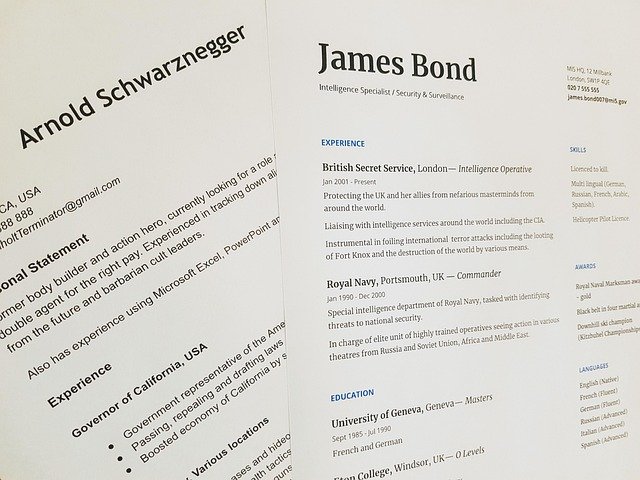Study and Work Abroad Programs for Aspiring Caregivers in 2026
Pursuing a career in caregiving through international study and work programs offers a unique pathway to global opportunities. As healthcare demands continue to rise worldwide, 2026 will see expanded programs allowing aspiring caregivers to gain valuable qualifications while experiencing different healthcare systems and cultures. These structured programs combine academic learning with practical experience, creating a comprehensive foundation for a successful international career.

Study and work abroad programs represent an increasingly attractive option for those pursuing careers in caregiving. With global healthcare needs expanding and an aging population in many developed countries, the demand for qualified caregivers continues to grow. The year 2026 is set to bring enhanced opportunities for international education and employment in this vital field. These programs offer a structured pathway to gain recognized qualifications while experiencing healthcare practices in different cultural contexts.
How Study-and-Work Programs Help Build Global Careers
Study-and-work programs create a foundation for truly international careers in caregiving. These programs typically combine formal education in healthcare principles with supervised practical experience, allowing participants to develop both theoretical knowledge and hands-on skills. The dual focus ensures graduates are job-ready upon completion, with credentials recognized across multiple countries.
The global perspective gained through these programs is particularly valuable in caregiving, where cultural sensitivity and adaptability are essential skills. Participants learn to navigate different healthcare systems and understand varied approaches to patient care. This international experience often translates to enhanced employability, as employers increasingly value professionals with diverse cultural competencies and global awareness.
Many programs also facilitate professional networking opportunities that span countries and continents. These connections can prove invaluable throughout a caregiver’s career, opening doors to future employment opportunities and collaborative projects. For those seeking long-term international mobility, these programs often serve as stepping stones toward permanent residency pathways in host countries.
Top Countries Offering Caregiver Study and Work Opportunities
Several countries stand out for their comprehensive study and work programs specifically designed for caregivers. Canada continues to lead with its integrated education and immigration pathways, offering programs that combine caregiver training with work permits and potential permanent residency routes. The Canadian system emphasizes both eldercare and childcare specializations, with programs ranging from one to two years in duration.
Germany has expanded its offerings for international caregiving students, with dual-education programs that alternate between classroom learning and practical training in healthcare facilities. The German approach places strong emphasis on technical proficiency and language acquisition, with most programs requiring students to achieve B1 or B2 proficiency in German during their studies.
Australia’s caregiver programs combine vocational training with work placement components, particularly in aged care and disability support services. The Australian system offers various certification levels, from Certificate III to Advanced Diploma qualifications, with corresponding work rights during and after studies. Japan has also emerged as a destination for caregiver training, offering specialized programs designed to address its rapidly aging population’s needs while providing international students with cultural immersion experiences.
Admission Requirements and Application Timeline
Successful application to caregiver study and work programs requires careful planning and preparation. Most programs maintain specific admission requirements, including educational prerequisites such as completed secondary education or prior healthcare training. Language proficiency represents another common requirement, with most countries requiring demonstrated competency in their official language through standardized tests like IELTS, TOEFL, or country-specific examinations.
The application timeline typically begins 12-18 months before the intended program start date. Initial research and program selection should occur approximately one year in advance, followed by language testing and credential evaluation. Most programs have application deadlines 6-8 months before commencement, with visa processing requiring an additional 2-4 months depending on the destination country.
Health screenings and background checks are standard requirements for caregiving programs, given the vulnerable populations served. These verifications may include criminal record checks from all countries where applicants have resided, immunization records, and general health assessments. Prospective students should also prepare for interviews that assess both technical knowledge and interpersonal skills essential for caregiving roles.
Scholarships, Grants, and Employer Sponsorship Options
Financing international caregiver education has become more accessible through various funding mechanisms. Government-sponsored scholarships specifically targeting healthcare fields have expanded in many host countries, recognizing the critical need for qualified caregivers. These scholarships often cover tuition and sometimes living expenses, with eligibility typically based on academic merit, financial need, or specific country-of-origin criteria.
Employer sponsorship represents another viable funding pathway, with healthcare institutions increasingly investing in future talent through sponsored education programs. These arrangements generally involve a contractual commitment to work with the sponsoring organization for a predetermined period following graduation. While this limits immediate job mobility, it provides financial security and guaranteed employment.
International organizations and foundations dedicated to healthcare workforce development offer grants specifically for caregiving education. Organizations like the World Health Organization, regional development banks, and private foundations provide competitive funding opportunities for promising candidates, particularly those committed to returning to underserved regions. Additionally, many educational institutions offer work-study arrangements that allow students to offset costs through part-time employment in related fields during their studies.
Life Abroad: Balancing Studies, Work, and Cultural Adaptation
Successfully navigating life as an international caregiver student requires effective balance between academic responsibilities, work commitments, and personal well-being. Most programs structure coursework to accommodate practical training components, but students must develop strong time management skills to handle the dual demands. Creating realistic schedules that account for study time, work hours, and necessary rest is essential for sustainable success.
Cultural adaptation represents both a challenge and opportunity for international caregiving students. Understanding the host country’s healthcare norms, communication styles, and patient expectations proves crucial for effective practice. Many successful programs incorporate cultural orientation components specifically addressing healthcare contexts, including concepts of personal space, appropriate touch, and communication with patients and families from diverse backgrounds.
Building support networks within both academic and professional environments significantly impacts the overall experience. Connecting with local students, fellow international participants, and mentors within healthcare facilities provides valuable guidance and emotional support during the adjustment process. Many institutions offer specific resources for international students, including counseling services, language exchange programs, and cultural integration activities designed to ease the transition to life abroad.
This article is for informational purposes only and should not be considered medical advice. Please consult a qualified healthcare professional for personalized guidance and treatment.




